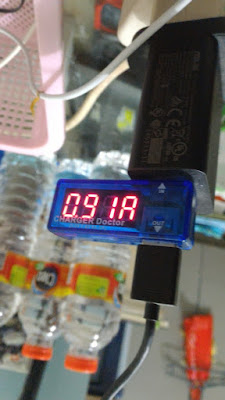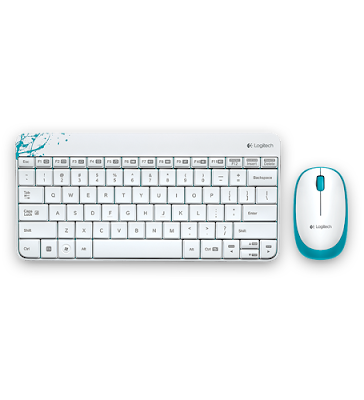Charger Doctor Review: Measure Your Charger Quickly and Easily
 |
| Charger Doctor Official Shot |
Our mobile technology has come a very long way. We used to only be able to call and text through cell phones but look at us now: checking our emails, editing office documents, using applications to book restaurant reservations, hotel rooms, or even calling a cab! Our cell phones (dubbed smartphones now) are starting to replace our PCs... or it may already have.
However, those features come at a cost: battery life. Our feature phones of old have the power to last for days, but now? Lasting a full day is already considered as an achievement. Unfortunately, our battery technology isn't that advanced yet, so the engineers apparently decide to tweak with the technology behind the charging process: fast charging. That's why our chargers are an important part of our lives now.
The question is, how do we know if our charger is being honest with its specs? Normally, we'll need some big-ass measuring device called avometer (in Indonesian, it's called that, at least...) but I've found a small, convenient device that could measure currents. Though limited, it's practically quite useful. Meet the Charger Doctor.
How can I use this? Well... this is what this review is for. Head past the break to find out!
Design
 |
| Charger Doctor close-up shot |
No boxes, no packages. Yes, this little fella' came only with a small white plastic packaging. Well, okay, it's less than Rp50.000,00 (~U$5) so I really shouldn't expect a fancy packaging. Anyway, design-wise, the Charger Doctor is nicely compact. Measuring at only 5 x 2 x 1.5 cm, you can easily slip it into your pocket or your bag. The design is also very simple and to-the-point. You have a male-female USB port coupled on top and bottom side of the device (the male is for input while the female one is for the ouput) and a small basic LED screen beside the ports. The LED screen will display the measurements the device acquired from your charging adapter.
Usage
There's a small writing on the front of the device: 3.5V-7.0V 0A-3A, which indicates the maximum amount of current it can measure. Most chargers available in Indonesia has the output of 5V and 1A or 2A, so this little guy should be able to measure most chargers out there. Unfortunately, I haven't got the opportunity to test this device with Samsung's latest adaptive fast charger, which, according to its specs, can pump out up to 9V 1.5A. Does it sound crazy? Maybe. However, the speed is real. It merely takes less than 30 minutes to go from 30% to 80% when that charger is connected to Galaxy Note 5. OnePlus' Dash Charge is said to be even faster, though I haven't got my hands on OnePlus 3 yet.
 |
| Using the Charger Doctor |
So, back to the topic. Using the Charger Doctor is fairly easy. As seen on the picture above, you only need to plug into the male USB port (the one with the IN writing) to your charging adapter, then plug your USB cable into the female USB port (the one with the OUT writing), then plug the other end of the cable into your gadget's USB port. Automatically, the Charger Doctor will measure the current that goes through it. Reading the measurement isn't difficult, too. The small LED screen will display the measurements, changing continuously between Ampere and Volt in an interval of a few seconds.
To put the Charger Doctor to a test, I try putting this little guy between my Xiaomi Redmi Note 3's charger, which is said to have supported Qualcomm's Fast Charging technology, and was proven true. Even though the generated current is less than 1A, the voltage generated is 7.55V, greater than most chargers out there which generate only 5V. The greater the voltage, the greater the power generated (basic electric theorem in Physics: P = V x I).
To put the Charger Doctor to a test, I try putting this little guy between my Xiaomi Redmi Note 3's charger, which is said to have supported Qualcomm's Fast Charging technology, and was proven true. Even though the generated current is less than 1A, the voltage generated is 7.55V, greater than most chargers out there which generate only 5V. The greater the voltage, the greater the power generated (basic electric theorem in Physics: P = V x I).
 |
| Charger Doctor in action (in Volt) |
 |
| Charger Doctor in action (in Ampere) |
Verdict
 |
| Charger Doctor is quite a useful device |
Even though I don't have an academic degree in Electronics, at least I still know how fast charging technology works and the Charger Doctor helps me diagnose whether there's something wrong with my chargers, or if the chargers are basically "lying" about their specs. However of course, I understand that this device is limited to providing short, basic information about your chargers. If you really want to determine whether there's something wrong with your chargers, I suggest buying an avometer, which is originally intended to measure electronic currents. The price? Heh, of course it's going to be more expensive than the Charger Doctor.
Pros:
- (Very) affordable price
- Small and compact design. Easy to carry anywhere
- Easy to use
Cons:
- Limited to measure a certain amount of Volt and Ampere
- Possibility that the measurements isn't accurate
Once again, if you're a curious person like me, there's nothing wrong with spending Rp25.000,00 (approximately U$2) to get this little guy, especially when you're starting to doubt either the authenticity or the quality of your chargers.
Okay, I guess that's all for now, Folks. I hope you find this review useful, or at least find this review expanding your knowledge. As always, thanks for reading and coming, and I'm looking forward to your next visit! :D

Comments
Post a Comment